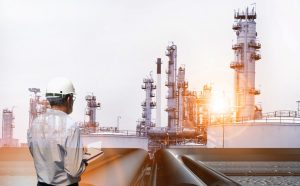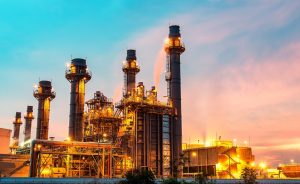
It’s helpful for anyone interested in a career as a process technician in the oil and gas industry to see a broad overview. Exploring the oil and gas industry involves the process of searching for potential underground reservoirs of crude oil and natural gas. Engineers conduct geological surveys, analyze seismic data, and drill exploratory wells to identify viable extraction sites.
Once located, companies estimate the size of the oil and gas reserves before moving to the extraction and refining stages. Once extracted, oil and gas are sent to refineries and turned into useful products like gasoline, motor oil, grease, heating oil, natural and propane gas, and plastic for residential and commercial use. Refineries need process technicians to manage the production lines for converting raw materials to finished products. Contact ITI Technical College today for more information about process technology: oil and gas industry.
Process Technology: Oil And Gas Industry Key Components
A basic understanding of the oil and gas industry starts with geological studies. Engineers analyze rock formations and sediment layers to identify potential oil and gas traps based on geological structures and past drilling data. Sound waves generated by controlled seismic sources are used to map underground rock formations. They identify potential hydrocarbon reservoirs by analyzing how the waves reflect off different rock layers, followed by:
- Exploration Drilling: Drilling test wells in promising locations confirm the presence or lack of oil or gas to assess the commercial viability of a reservoir.
- Data Analysis: Engineers interpret the geological and seismic data to identify potential drilling locations and assess the size of the reservoir.
- Play Fairway Analysis: Areas are identified with favorable geological conditions that are likely to contain oil or gas, and full drilling operations begin on these sites.
Oil And Gas Exploration Concerns
Oil and gas exploration is not as simple as harvesting trees and sending them to a sawmill. It is a high-risk investment because of the uncertainty of finding commercially viable oil and gas reserves. Modern exploration techniques and technologies like 3D seismic imaging and advanced data analysis tools must be used. They significantly enhance the accuracy of identifying potential reservoirs.
Exploration activities can have environmental impacts, including land disturbance and potential risks of spills during drilling operations. These activities are subject to government regulations and permitting processes to ensure responsible practices and protect the environment.
| “Refineries need process technicians to manage the production lines for converting raw materials to finished products.” |
Key Terms In The Oil And Gas Industry
 Process technology graduates need to understand the basic terms used in this industry. As technicians on the production lines, they will use these terms regularly:
Process technology graduates need to understand the basic terms used in this industry. As technicians on the production lines, they will use these terms regularly:
- Barrel (bbl) is the standard unit for measuring oil volume, equivalent to 42 gallons.
- A blowout means a sudden release of pressure in a wellbore that can cause a violent release of oil and gas.
- Crude oil is unrefined petroleum extracted from the ground.
- Horizontal drilling is a drilling technique that turns a well from vertical to horizontal positioning to access more of an oil or gas reservoir.
- Leases are contractual agreements between landowners and companies to exploit the land for oil, gas, or other materials for a set time.
- Natural gas is a hydrocarbon gas mixture found alongside oil, often used for heating and electricity generation.
- Pipelines are long underground pipes used for transporting oil and gas over long distances.
- Refining is the process of converting crude oil into usable products like gasoline and diesel fuel.
- Rigs are drilling platforms, such as a drill ship, derrick, or a jack-up unit and their associated machinery.
A Process Technician’s Role In The Oil And Gas Industry
A process technician is responsible for monitoring and controlling the operational processes of an oil or gas production facility. The technician ensures smooth production by maintaining equipment and adjusting settings as needed. Collecting data, troubleshooting issues, and adhering to safety regulations, all while working closely with engineers to optimize efficiency and output, are required. Additional responsibilities include the following:
- Documentation: Maintaining detailed logs of operational activities, including equipment status, process adjustments, and any irregularities, is a must.
- Monitoring process variables: Technicians continuously observe and record critical parameters like pressure, temperature, flow rates, and fluid levels. They use control panels and gauges to identify potential problems early on.
- Operating plant equipment: Techs safely operate pumps, compressors, valves, and other machinery within the production facility according to established procedures.
- Quality control: Product quality is maintained by monitoring key parameters and taking corrective actions when necessary to meet company and industry standards.
- Safety compliance: Adherence to all safety protocols, identifying potential hazards, and taking immediate action to address safety concerns are essential.
The oil and gas industry is vital to our economy and the nation’s success. Process technicians in this industry help create essential products we use in everyday life. To learn more about the Associate of Occupational Studies (AOS) Degree in Process Technology from ITI Technical College and request more information.
For more information about graduation rates, the median debt of students who completed the program, and other important information, please visit our website: https://iticollege.edu/disclosures/





